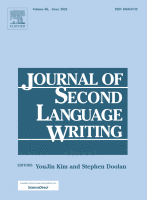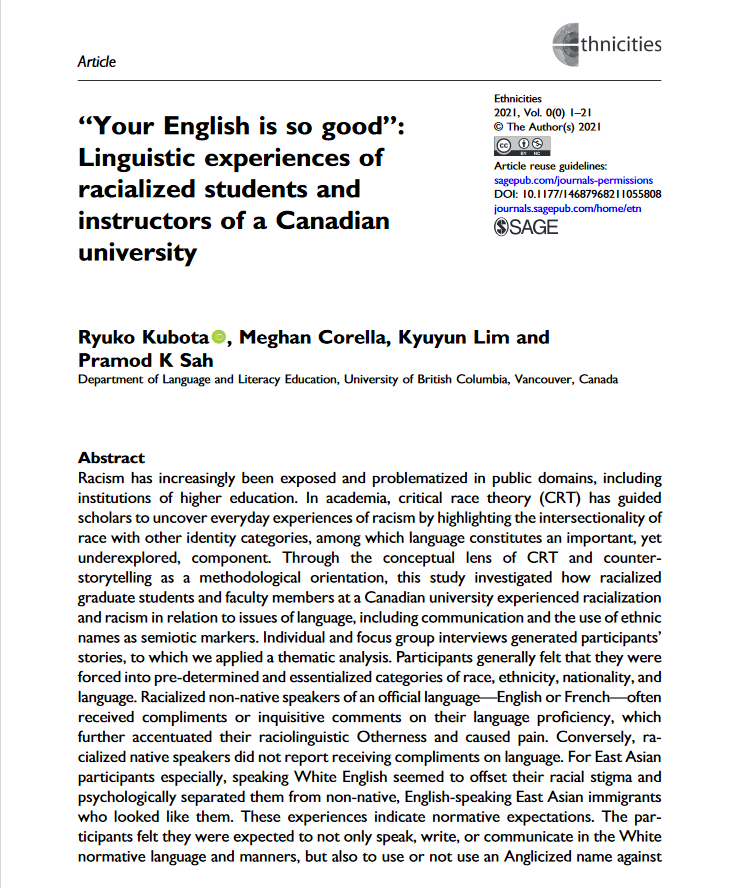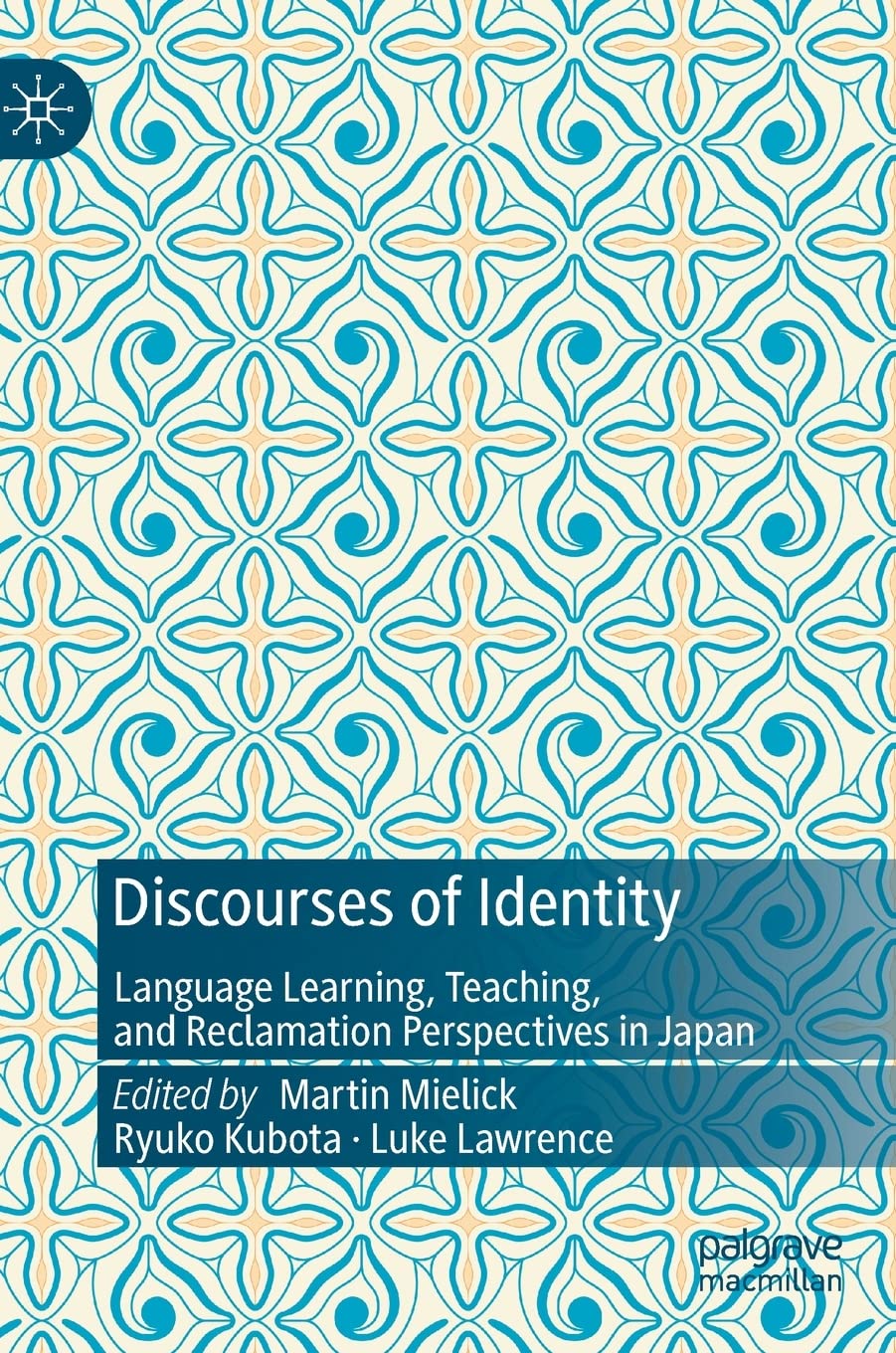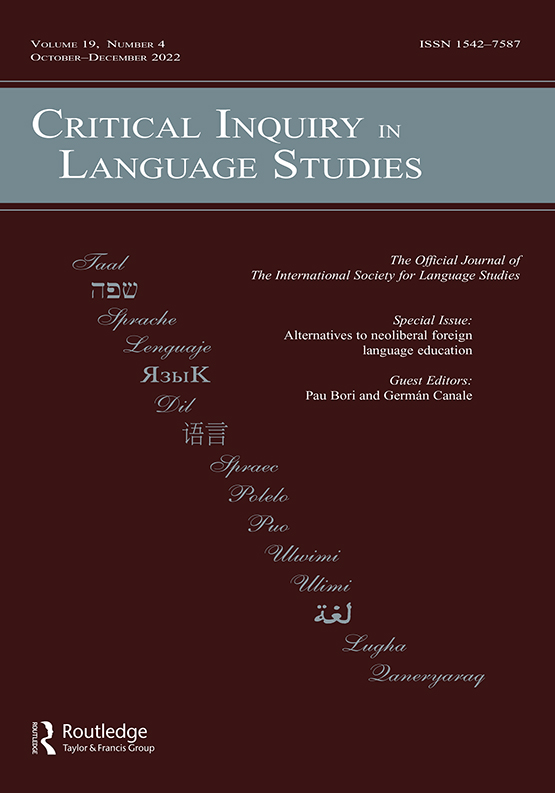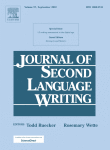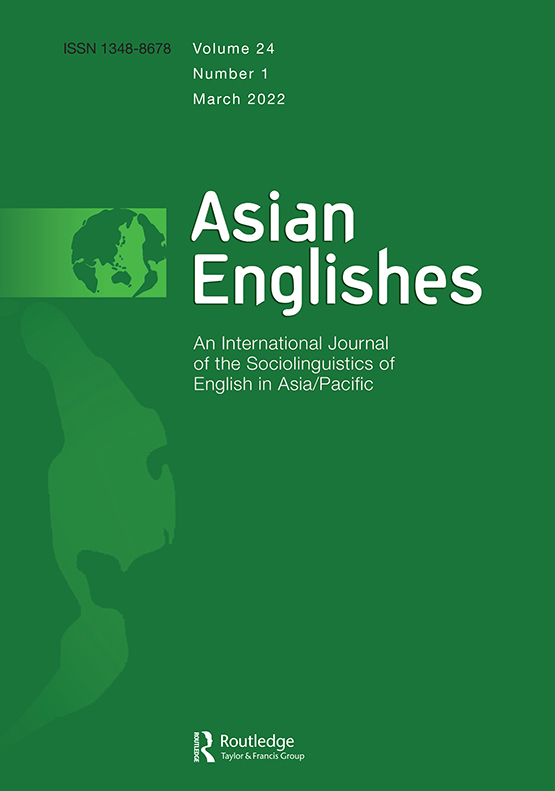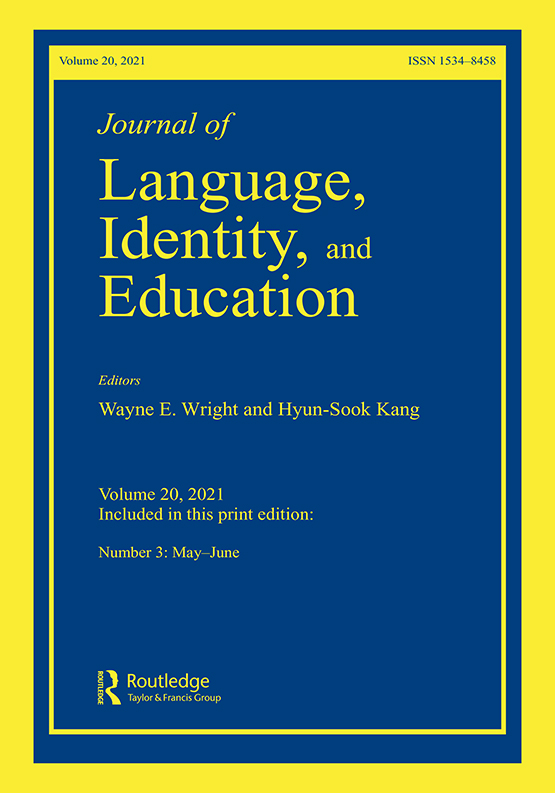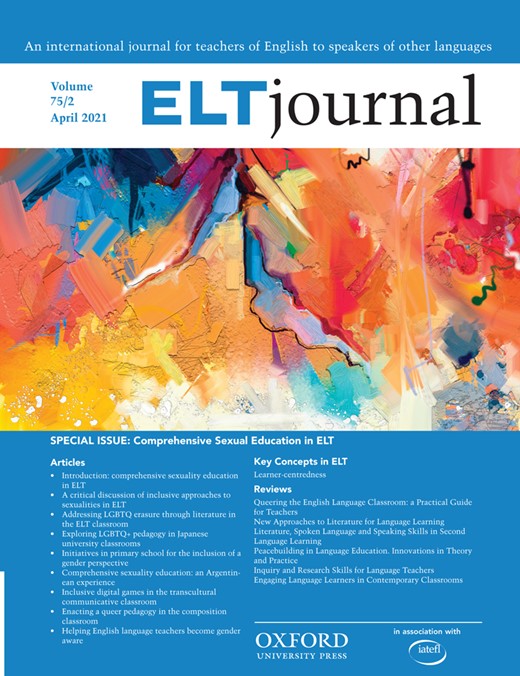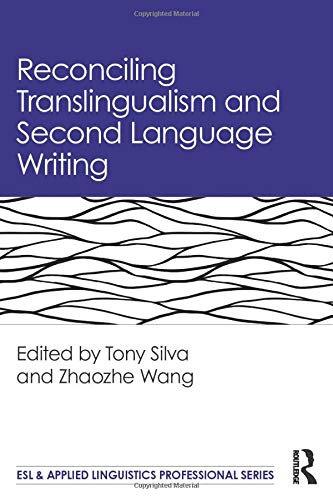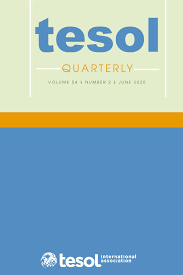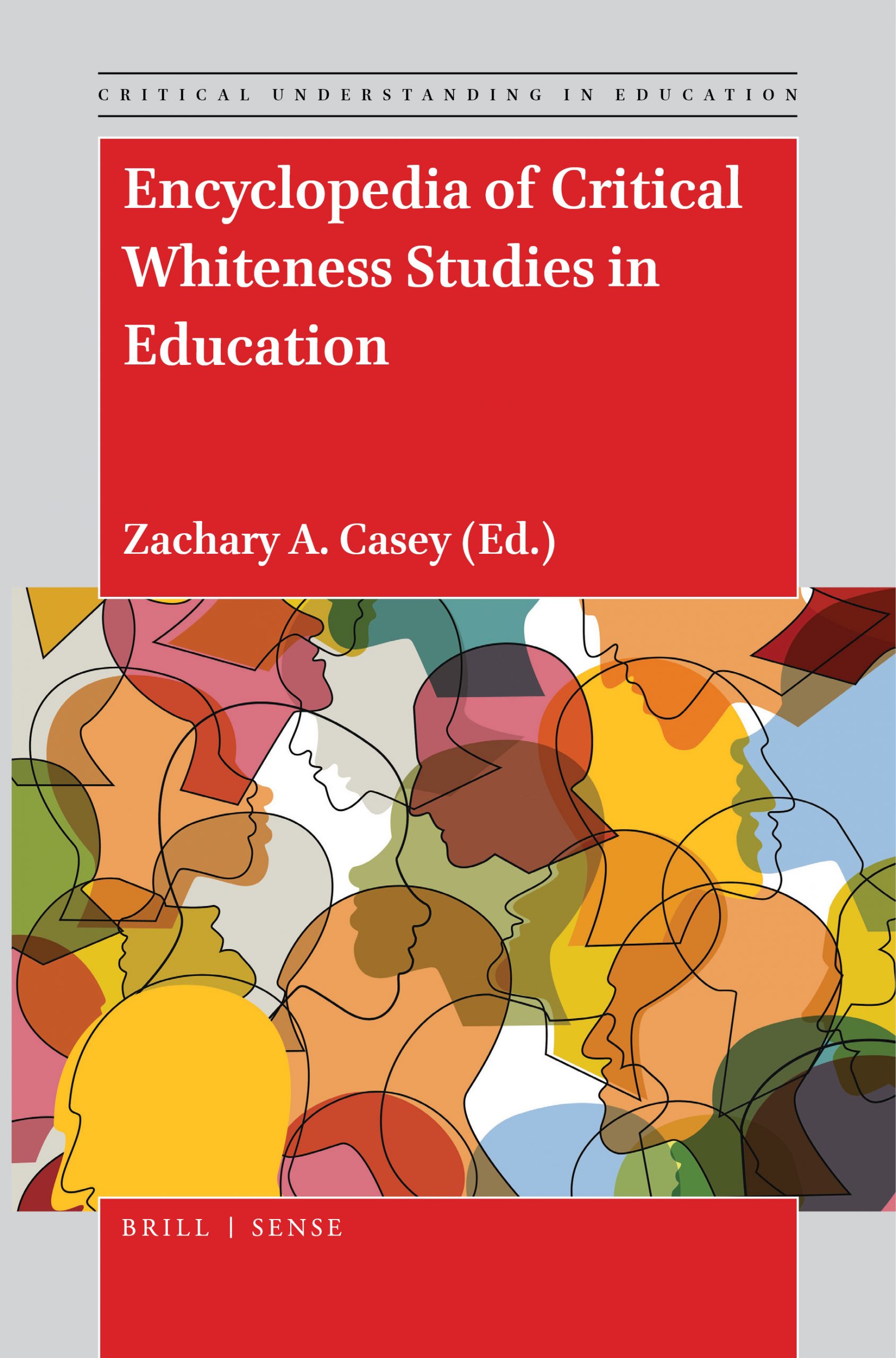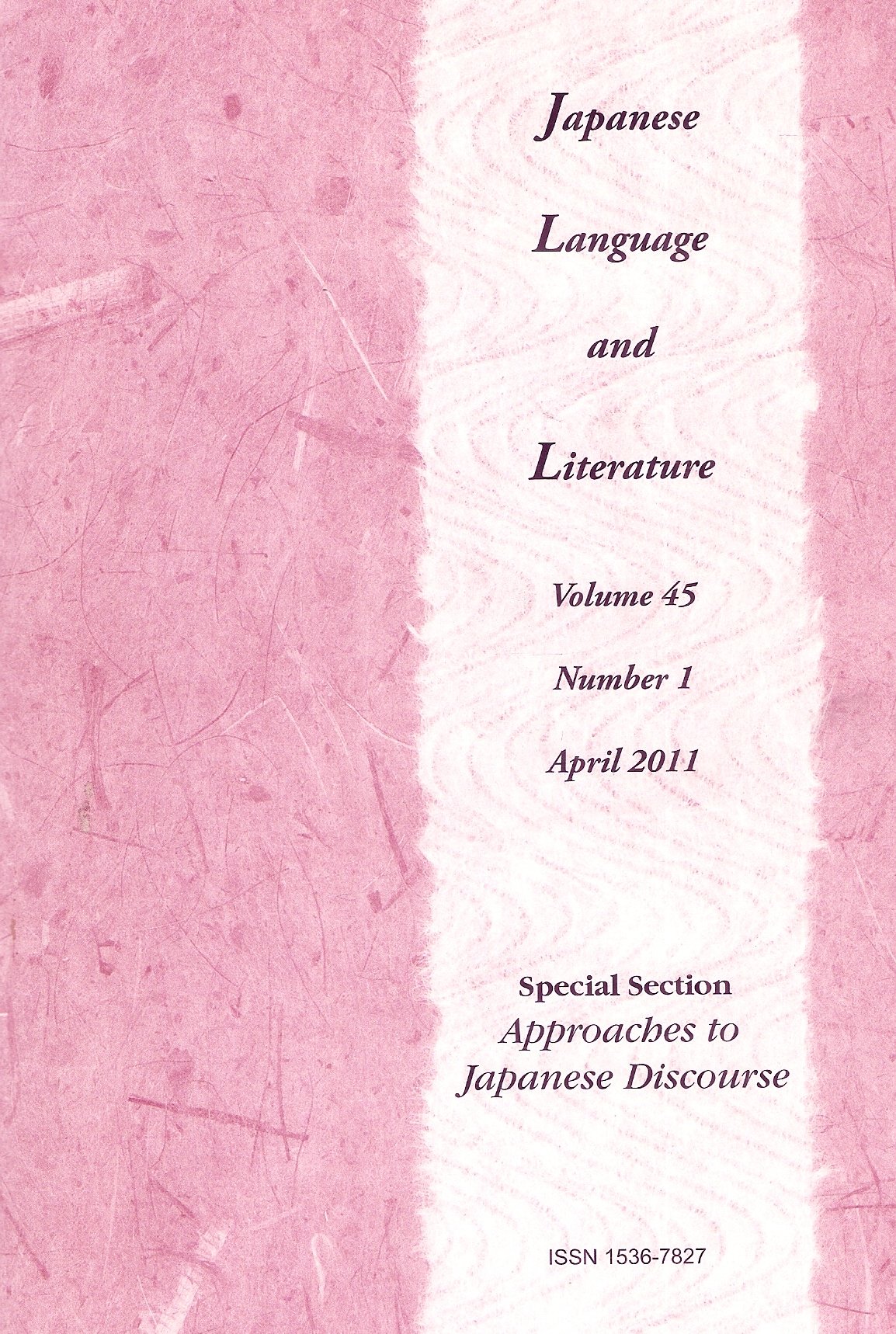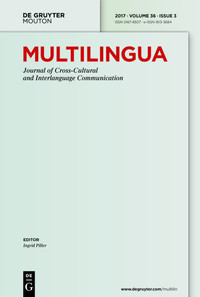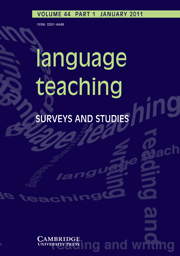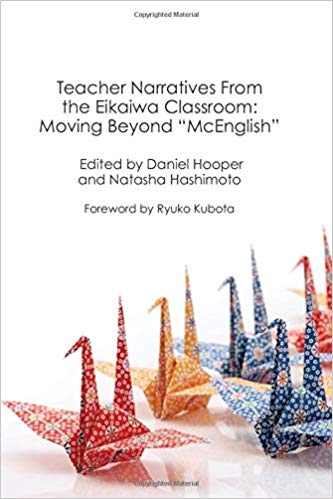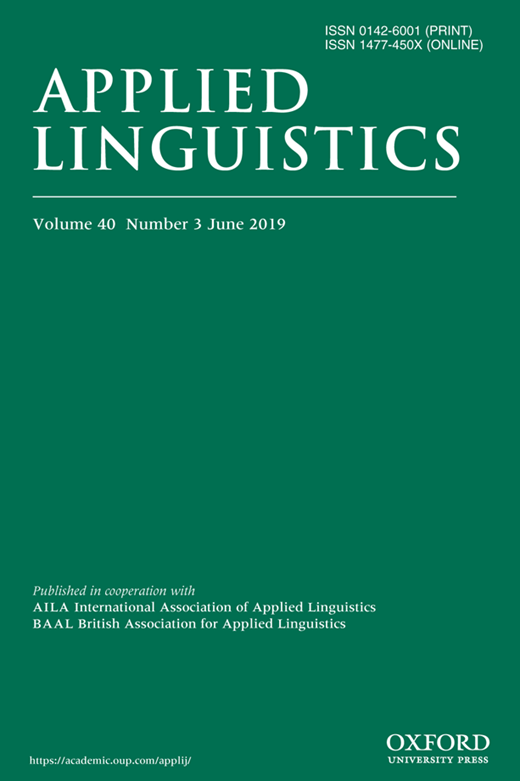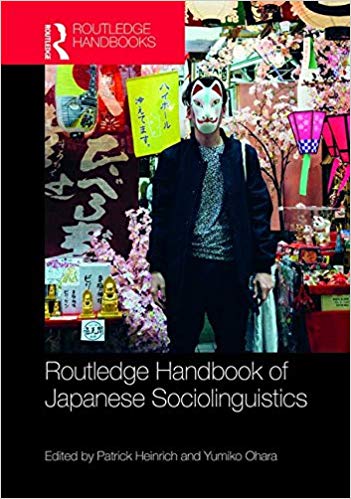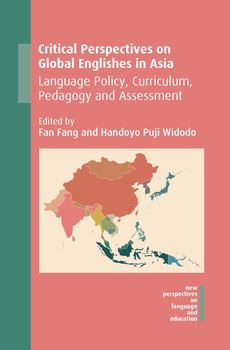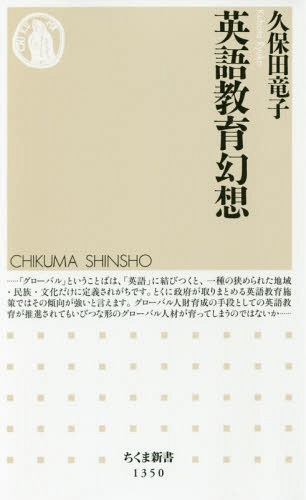Selected Publications
Kubota, R., & Motha, S. (2025)
Kubota, R. (2025)
Antiracist and decolonial perspectives of teaching EIL: Theory and enactment. In A. F. Selvi & N. Galloway (Eds.), The Routledge handbook of English as an international language (pp. 267–279). Routledge.
Kubota, R. (2025)
From multiculturalism to social justice: Implications for language education in the United States and Canada. In C. Fäcke, X. (A). Gao, & P. Garrett-Rucks (Eds.), Handbook of plurilingual and intercultural language learning (pp. 29–42). Wiley Blackwell.
Kubota, R., & Motha, S. (Eds.) (2025)
Kubota, R., Corella, M., Lim, K., & Sah, P. (2023)
Kubota, R. (2023)
人種とことばとパワー:フィクション小説が言語教育の与える示唆 [Race, language, and power: Fiction novels and their implications for language education].
社会言語科学 [Sociolinguistic Science], 26(1), 49–63.
https://doi.org/10.19024/jajls.26.1_49
Matsumoto, Y., Kubota, R. (2023)
Rethinking English as a lingua franca from decolonial perspectives. In K. Murata (Ed.), ELF and applied linguistics: Reconsidering applied linguistics research from an ELF perspective (pp. 141–158). Routledge.
Mielick, M., Kubota, R., & Lawrence, L. (Eds.) (2023)
Kubota, R., Aoyama, R., Kajigaya, T., & Deschambault, R. (2022)
Seo, Y., & Kubota, R. (2022)
Balyasnikova N., & Kubota, R. (2022)
Language teaching for intercultural communication: Problematizing essentialism, highlighting power, and advocating for social justice. In N. Carignan, M. Deraîche, & M.-C. Guillot (Eds.), Intercultural Twinning: A Commitment for a pluralistic society (61–78). Brill.
Kubota, R., & Corella, M. (2022)
Sah, P. K., & Kubota, R. (2022)
Kubota, R. (2021)
Critical engagement with teaching EFL: Toward a trivalent focus on ideology, political economy, and praxis. In O. Z. Barnawi & A. Ahmed (Eds.), TESOL teacher education in a transnational world: Turning challenges into innovative prospects (pp.49–64). Routledge.
Kubota, R. (2021)
Toward a performative commitment to heterogeneity. In A. J. Silva & Z. Wang (Eds.), Reconciling translingualism and second language writing (pp. 163–171). Routledge.
Kubota, R., & Takeda, Y. (2021).
Two faces of neoliberal communicative competence: Language-in-education policies in Japan and transnational workers’ voices.
TESOL Quarterly, 55(2), 458–485.
https://doi.org/10.1002/tesq.613
Kubota, R. (2020, November 19)
Kubota, R. (2020)
Orientalism. Z. A. Casey (Ed.), Encyclopedia of critical whiteness studies in education (pp. 439–446). Brill/Sense Publishing.
Von Esch, K. S., Motha, S., & Kubota, R. (2020)
Kubota, R., & Bale, J. (2020)
Bilingualism—but not plurilingualism—promoted by immersion education in Canada: Questioning equity for EAL students. TESOL Quarterly, 54, 773–785.
Kubota, R. (2020)
Foreword. In D. Hooper & N. Hashimoto (Eds.), Teacher narratives from the eikaiwa classroom: Moving beyond “McEnglish” (pp. 1–3). Hong Kong: Candlin & Mynard ePublishing Limited.
Kubota, R. (2020).
Promoting and problematizing multi/plural approaches in language pedagogy. In S. M. C. Lau & S. Van Viegen (Eds.), Plurilingual pedagogies: Critical and creative endeavors for equitable language in education (pp. 303–321). Springer.
Kubota, R. (2019)
English in Japan. In P. Heinrich & Ohara, Y. (Eds.), The Routledge handbook of Japanese sociolinguistics (pp. 110-126). Abingdon, UK: Routledge.
Kubota, R. (2019)
A critical examination of common beliefs about language teaching: From research insights to professional engagement. In F. Fang & H. P. Widodo (Eds.), Critical perspectives on global Englishes in Asia: Language policy, curriculum, pedagogy and assessment (pp. 10–26). Bristol, UK: Multilingual Matters.
Kubota, R. (2018).
Racial, ethnic, and cultural stereotypes in Teaching English. In J. I. Liontas (Ed.), The TESOL Encyclopedia of English Language Teaching. Wiley.
Kubota, R. (2018).
Critical Approaches to Second Language Writing. In J. I. Liontas (Ed.), The TESOL Encyclopedia of English Language Teaching. Wiley.
Kubota, R. (2018).
Possibilities for nonattachment: Investigating the affective dimension of imposition. In M. S. Wong & A. Mahboob (Eds.), Spirituality and English language teaching: Religious explorations of teacher identity, pedagogy and context (pp. 63-71). Bristol, UK: Multilingual Matters.
Kubota, R. (2018).
Rethinking “communication” in communicative language teaching. In Y. N. Leung, J. Katchen, S. Y. Hwang & Y. Chen (Eds.), Reconceptualizing English language teaching and learning in the 21st century: A special monograph in memory of Professor Kai-Chong Cheung (pp. 482-497). Taipei, Taiwan: Crane Publishing Company.
Kubota, R. (2018).
Unpacking research/practice gaps and complicities in WE and SLA research. World Englishes, 37, 93-105.
Kubota, R. (2018).
Eigo kyōiku gensō [Misconceptions of English language teaching and learning]. Tokyo: Chikuma Shinsho.
Kubota, R. (2017).
Myths of English and transnational Japanese workers’ experiences: Toward border-crossing communication. BCSIG (JALT Business Communications Special Interest Group) News #3, p. 5-7.
Kubota, R. (2017).
Globlization and language education in Japan. In N. Van Deusen-Scholl & S. May (Eds.), Second and foreign language education, Encyclopedia of language and education (Volume 4) (pp. 287-299). Cham, Switzerland: Springer.
Kubota, R. (2017).
Studying up, down, or across?: Selecting who to research. Studying up, down, or across?: Selecting who to research. In McKinley, J., & Rose, H. (Eds.), Doing research in applied linguistics: Realities, dilemmas, and solutions (pp. 17-26). Abingdon, UK: Routledge.
Kubota, R., & Miller, E. (Eds.) (2017).
Special issue: Re-examining and re-envisioning criticality in language studies. Critical Inquiry in Language Studies.
Kubota, R., & Miller, E. R. (2017).
Re-examining and re-envisioning criticality in language studies: Theories and praxis. Critical Inquiry in Language Studies, 14, 129-157.
Kubota, R. (2016).
Neoliberal paradoxes of language learning: Xenophobia and international communication. Journal of Multilingual and Multicultural Development, 37(5), 467–480.
Kubota, R. (2016).
A critical examination of common beliefs about language teaching: From research insights to professional engagement. Epoch making in English language teaching and learning (pp. 348–365). Taipei: English Teachers’ Association-Republic of China (ETA-ROC).
Kubota, R. (2016).
Critical language teacher identity. In G. Barkhuizen (Ed.), Reflections on language teacher identity research (pp. 210–214). New York: Routledge.
Kubota, R., & Okuda, T. (2016).
Confronting language myths, linguicism and racism in English language teaching in Japan. In P. Bunce, V. Rapatahana, R. Phillipson, & T. R. F. Tupas (Eds.), Why English? Confronting the Hydra (pp. 159–176). Bristol, UK: Multilingual Matters.
Kubota, R. (2016).
Critical content-based instruction in the foreign language classroom: Critical issues for implementation. L. Cammarata (Ed.), Content-based foreign language teaching: Curriculum and pedagogy for developing advanced thinking and literacy skills (pp. 192–211). New York: Routledge.
Kubota, R. (2016).
The social imaginary of study abroad: Complexities and contradictions. Language Teaching Journal, 44, 347–357.
Kubota, R. (2016).
The multi/plural turn, postcolonial theory, and neoliberal multiculturalism: Complicities and implications for applied linguistics. Applied Linguistics, 37(4), 474–494.
Kubota, R. (2015). Ajia ni okeru nikkei kigyô chûzai in no gengo sentaku: Eigo shijôshugi e no gimon [Language choices of Japanese corporate transnational workers in Asia: Questioning the ideological dominance of English]. Kotoba to Shakai [Language and Society], 17, 81–106.
Kubota, R. (2015). Race and language learning in multicultural Canada: Toward critical antiracism. Journal of Multilingual and Multicultural Development, 36, 3–12.
Kubota, R. (2015). Gurôbaruka shakai to gengo kyôiku: Kuritikaru na shiten kara [Language education in an era of globalization: Critical perspectives] (Japanese translation of selected publications by Kubota). Tokyo: Kuroshio Shuppan.
Kubota, R. (2015). Eigo kyôiku to bunka, jinshu, jendâ [Culture, race, gender and English language education] (Japanese translation of selected publications by Kubota). Tokyo: Kuroshio Shuppan.
Kubota, R. (2015). Paradoxes of learning English in multilingual Japan: Envisioning education for border-crossing communication. In I. Nakane & E. Otsuji (Eds.), Languages and identities in a transitional Japan: From internationalization to globalization (pp. 59–77). New York: Routledge.
Kubota, R. (2015). Inequalities of Englishes, English speakers, and languages: A critical perspective of pluralist approaches to English. In T. R. F. Tupas (Ed.), Unequal Englishes: The politics of Englishes today (pp. 21–41). New York: Palgrave.
Kubota, R. (2014). “We must look at both sides”–but denial of genocide too?: Difficult moments on controversial issues in the classroom. Critical Inquiry in Language Studies, 11, 225-251.
Heng Hartse, J., & Kubota, R. (2014). Pluralizing English? Variation in high-stakes academic writing. Journal of Second Language Writing, 24, 71-82. http://dx.doi.org/10.1016/j.jslw.2014.04.001
Kubota, R. (2013). “Language is only a tool”: Japanese expatriates working in China and implications for language teaching. Multilingual Education. dpi:10.1186/2191-5059-3-4 Available from http://www.multilingual-education.com/content/3/1/4
Kubota, R., & Fujimoto, D. (2013). Racialized native-speakers: Voices of Japanese American English language professionals. In S. A. Houghton & D. J. Rivers (Eds.), The native-speaker English language teacher: From exclusion to inclusion (pp. 196-206). Multilingual Matters.
Kubota, R., & Sun, Y. (Eds.) (2012). Demystifying career paths after graduate school: A guide for second language professionals in higher education. Charlotte: NC: Information Age Publishing.
Kubota, R. (2012). Memories of war: Exploring Victim-Victimizer Perspectives in Critical CBI in Japanese. L2 Journal, 4, 37-57. Available from http://escholarship.org/uc/item/2c88h039
Kim, S. & Kubota, R. (Eds.) (2012). Special Topic Issue: Supporting nonnative-English-speaking instructors to maximize student learning in their courses. Journal on Excellence in College Teaching.
Kubota, R. (2012). The politics of EIL: Toward border-crossing communication in and beyond English. In A. Matsuda (Ed.), Principles and practices of teaching English as an international language (pp.55-69). Bristol, UK: Multilingual Matters.
Kubota, R. (2011). School curriculum and assessment in Japan: Politics in foreign language education. In Y. Zhao et al. (Ed.), Handbook of Asian education: A cultural perspective (pp. 214-230). New York: Routledge.
Kubota, R. (2011). Questioning linguistic instrumentalism: English, neoliberalism, and language tests in Japan. Linguistics and Education, 22, 248-260. doi:10.1016/j.linged.2011.02.002
Kubota, R. (2011). Learning a foreign language as leisure and consumption: Enjoyment, desire, and the business of eikaiwa. International Journal of Bilingual Education and Bilingualism, 14, 473-488.
Kubota, R. (2010). Cross-cultural perspectives on writing: Contrastive rhetoric. In N. H. Hornberger & S. L. McKay (Eds.), Sociolinguistics and language education (pp. 265-289). Bristol, UK: Multilingual Matters.
Kubota, R. (2010). Critical multicultural education and second/foreign language teaching. In S. May & C. Sleeter (Eds.), Critical multiculturalism: From theory to practice (pp. 99-112). New York: Routledge.
Kubota, R. (2010). Critical approaches to theory in second language writing: A case of critical contrastive rhetoric. In T. Silva & P. K. Matsuda (Eds.), Practicing theory in second language writing (pp. 191-208). West Lafayette, IN: Parlor Press.
Kubota, R., & McKay, S. (2009). Globalization and language learning in rural Japan: The role of English in the local linguistic ecology.TESOL Quarterly, 43, 593-619.
Kubota, R. (2009). Internationalization of universities: Paradoxes and responsibilities. The Modern Language Journal, 93, 612-616.
Kubota, R. (2009). Rethinking the Superiority of the Native Speaker: Toward a Relational Understanding of Power. In Neriko, M. Dorr (Ed.),“Native speakers” revisited: Multilingualism, standardization, and diversity in language education (pp. 233-247). Mouton de Gruyter.
Kubota, R., & Lin, A. (Eds.) (2009). Race, culture, and identity in second language education: Exploring critically engaged practice. New York: Routledge.
Kubota, R. (2009). Spiritual dimensions in language teaching: A personal reflection. In M. S. Wong & S. Canagarajah (Eds.), Christian and critical English language educators in dialogue: Pedagogical and ethical dilemmas (pp. 225-234). New York: Routledge.
Kubota, R. (2008). A critical glance at romance, gender, and language teaching. Essential Teacher, 5(3), 28-30.
Kubota, R. (2008). Critical approaches to teaching Japanese and culture. In J. Mori & A. S. Ohta (Eds.), Japanese applied linguistics: Discourse and social perspectives (pp. 327-352). Continuum.
Kubota, R., & Catlett, S. (2008). Spanish only for foreign language at the elementary school (FLES): Competing discourses in local language policy. Foreign Language Annals, 41, 102-118.
Shin, H., & Kubota, R. (2008). Postcolonialism and globalization in language education. In B. Spolsky & F. M. Hult (Eds.), The handbook of educational linguistics (pp. 206-219). Malden, MA: Blackwell.
Kubota, R., & Austin, T. (2007). Critical approaches to world language education in the United States: An introduction. Critical Inquiry in Language Studies, 5 (2&3), 73-83.
Shi, L., & Kubota, R. (2007). Patterns of Rhetorical Organizations in Canadian and American Language Arts Textbooks: An Exploratory Study. English for Specific Purposes, 26(2), 180-202.
Kubota, R., & Lin, A. (2006). Race and TESOL: Concepts, research, and future directions. TESOL Quarterly, 40(3), 471-493.
Kubota, R., & Lehner, A. (2004). Toward critical contrastive rhetoric. Journal of Second Language Writing, 13, 7-27.
Kubota, R. (2004). Critical multiculturalism and second language education. In B. Norton & K. Toohey (Eds.), Critical pedagogies and language learning (pp. 30-52). Cambridge University Press.
Kubota, R. (2004). The Politics of cultural difference in second language education. Critical Inquiry in Language Studies, 1(1), 21-39.
Kubota, R. (2003). Unfinished knowledge: The story of Barbara. College ESL, 10(1 & 2), 11-21.
Kubota, R., Austin, T., & Saito-Abbot, Y. (2003). Diversity and inclusion of sociopolitical issues in foreign language classrooms: An exploratory survey. Foreign Language Annals, 36(1), 12-24.
Kubota, R. (2003). Critical teaching of Japanese culture. Japanese Language and Literature, 37, 67-87.
Kubota, R. (2003). New approaches to race, class, and gender in second language writing. Journal of Second Language Writing, 12(1), 31-47.
Kubota, R. (2001). Discursive construction of the images of U.S. classrooms. TESOL Quarterly, 35(1), 9-38.
Kubota, R. (2001). Teaching World Englishes to native speakers of English: A pilot project in a high school class. World Englishes, 20(1), 47-64.
Kubota, R., Gardner, K., Patten, M., Thatcher-Fettig, C., & Yoshida, M. (2000). Mainstream peers try on English Language Learners’ shoes: A shock language experience. TESOL Journal, 9 (4), 12-16.
Kubota, R., & Ward, L. (2000). Exploring linguistic diversity through World Englishes. English Journal, 89(6), 80-86.
Kubota, R. (1999). Japanese culture constructed by discourses: Implications for applied linguistic research and English language teaching.TESOL Quarterly, 33(1), 9-35.

